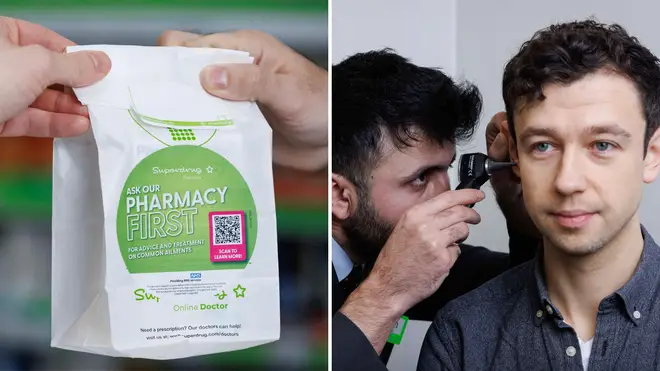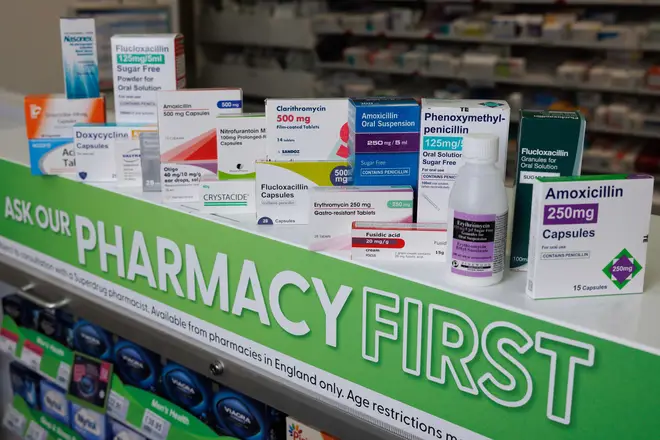
Vanessa Feltz 3pm - 6pm
31 January 2024, 09:48 | Updated: 31 January 2024, 10:29

Thousands of pharmacists across England will be able to assess and treat patients for several conditions from Wednesday.
The move has been introduced to relieve pressure on GP surgeries, freeing up 10 million appointments a year.
Patients will be able to request consultations with pharmacists, who will be able to ask questions and perform some examinations.
A nationwide advertising campaign is expected to begin soon, urging the public to turn to pharmacies first if their symptoms match certain conditions.
Pharmacists across England will be able to assess and treat patients for seven common conditions:
More than nine in 10 community pharmacies in England - 10,265 in total - will be offering the checks under the Pharmacy First scheme, according to NHS England.
It is intended to give people more places to get the care they need.
Pharmacies will receive an initial fixed payment of £2,000 each for providing the scheme. They will also receive £15 per consultation and a monthly fixed payment of £1,000 if they do a minimum number of consultations.

NHS chief executive Amanda Pritchard said: "GPs are already treating millions more people every month than before the pandemic, but, with an ageing population and growing demand, we know the NHS needs to give people more choice and make accessing care as easy as possible.
"People across England rightly value the support they receive from their high street pharmacist, and, with eight in 10 living within a 20-minute walk of a pharmacy and twice as many pharmacies in areas of deprivation, they are the perfect spot to offer people convenient care for common conditions."
Prime Minister Rishi Sunak said: "Community pharmacies already do a tremendous job at treating minor conditions, and with the Pharmacy First service - backed by £645 million - we're determined to go further and unlock their full potential to deliver routine care.
"Patients who need treatment or prescription medication for common conditions like an earache will now be able to get it directly from a pharmacy, without a GP appointment.
"This is about ensuring people get the treatment they need closer to home, while crucially helping deliver on our plan to cut waiting lists, by freeing up 10 million GP appointments a year, so people get the care they need more quickly."
Dr Leyla Hannbeck, chief executive of the Association of Independent Multiple Pharmacies, welcomed the move but warned that pharmacies are "severely underfunded to the tune of £1.2 billion now and as a direct result of that are reducing opening hours and even closing completely".
"This nonsense cannot go on and this stranglehold of chronic underfunding must be relieved now to ensure our community pharmacies continue to exist and can deliver to the potential the government is expecting," she added.